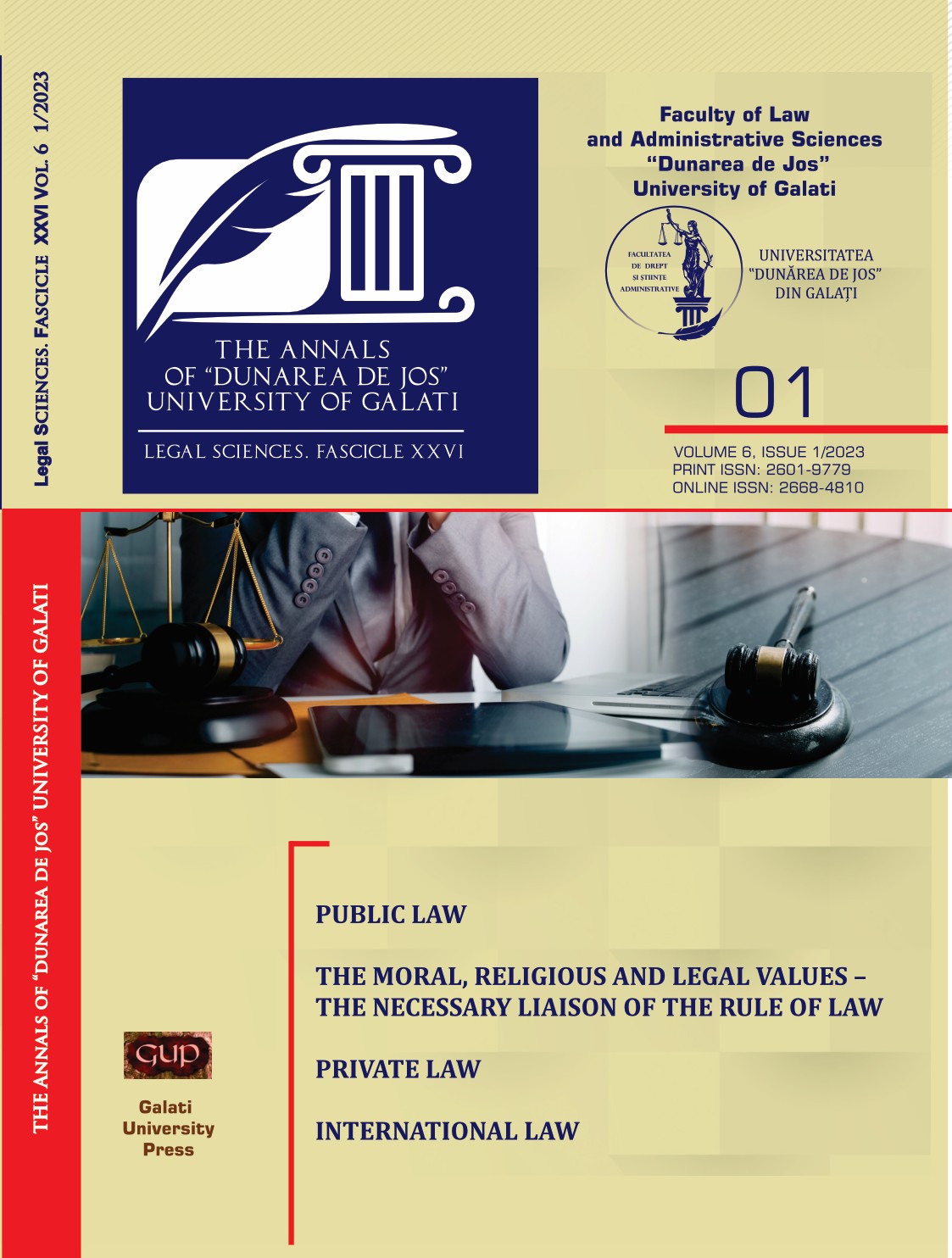Justice and Morality: Emile Durkheim and Max Weber
Abstract
Fundamental for the social order is the concept of authority. The source of this authority can currently be considered the existing set of legal norms, according to which society is governed. The modern legal order is likely to create a "science of morality" (Emile Durkheim), as it has the merit of rationalizing the main moral precepts, which have crystallized since the previous centuries as fundamental elements regarding the organization of social groups. The exercise of authority, an essential element in the governing process of communities, is carried out intrinsically or extrinsically to them. Durkheim seeks to verify the first hypothesis, since, he believes the law is a direct expression of the cultural particularities of every human community. The nature of law is unique within each system, as it is directly influenced by the degree to which legal norms contribute (or not) to shaping social solidarity. On the other hand, Weber relies on the existence of an external authority, located at the top of the pyramid of the bureaucratic system and that is individualized as an entity distinct from the rest of the community. The governance of communities by this authority is based on legitimacy, which can be acquired from three distinct sources, the strength of which evolves decreasingly: law, tradition, respectively charisma/discourse.

This work is licensed under a Creative Commons Attribution 4.0 International License.
The author fully assumes the content's originality and the holograph signature makes him responsible in case of trial.


